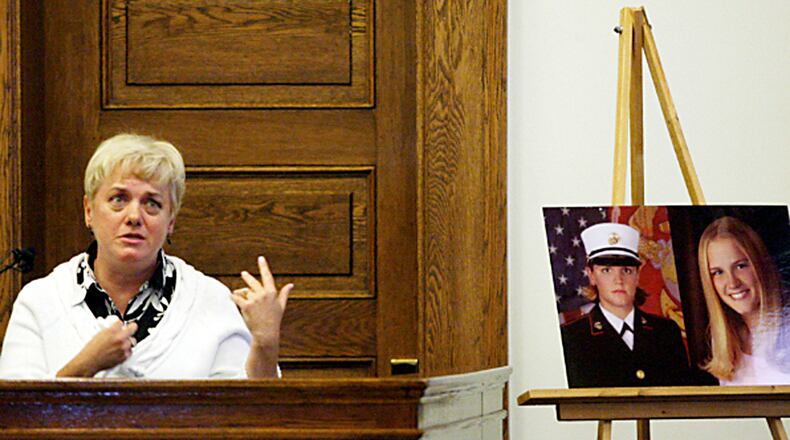Incidents of sexual harassment and sexual assault has been a problem in the military for many years, as evidenced by the disappearance and murder 13 years ago this coming Monday of Vandalia native Lance Cpl. Maria Lauterbach.
There have been some attempts to improve the system, but those in authority have not been held accountable. Despite the recurring tragic cases of sexual assaults and sexual harassment throughout so many military encampments, they go on. Oh, when will they ever learn?
The discipline at Fort Hood followed an exhaustive investigation launched after the murder of Spc. Vanessa Guillén in April of 2020.
Guillén disappeared from her assigned post at Fort Hood. Her family says that she disappeared the day after she told fellow soldier Aaron Robinson that she was going to file a sexual harassment claim against him. More than two months after her disappearance, the charred remains of her body were discovered in a shallow grave. The next day, as the police approached Robinson, he took out a pistol and took his own life.
The story haunts me.
In so many ways it parallels the disappearance and murder of Lance Cpl. Lauterbach
Maria grew up in Vandalia, Ohio, and, after high school, joined the Marines. On December 14, 2007, she disappeared from her assigned post at Camp Lejeune, a large Marine base in North Carolina. Maria had filed a sexual assault claim against fellow Marine, Cpl Cesar Laurean, and was scheduled to testify at an upcoming Article 32 hearing. More than a month after her disappearance, the charred remains of her body were discovered in a shallow firepit in Laurean’s backyard. Laurean took off for Mexico, where he eluded capture and extradition for more than one year, before eventually being brought back to the United States, tried, convicted, and sentenced to life without the possibility of parole.
When Maria disappeared, her mother, Mary Lauterbach, asked me to work with her to understand the military’s processing of Maria’s death and to understand the military justice system, since I had served in the Army JAG Corps.
We sought answers both to the investigation, and to what improvements could be made in the military justice system. Mary and I both testified before Congress. She became the voice of Maria and personalized her disappearance and murder. I tried to identify the deficiencies and gaps in the investigation and the military’s legal system.
With the support of a bipartisan group in Congress, led by local Congressman Mike Turner, we were able to make significant changes in the Uniform Code of Military Justice.
Those changes have improved the process somewhat, but as the Guillén case at Fort Hood demonstrated, the problem continues amid a continuing failure to hold accountable those with command authority. More needs to be done. An important place to start should be to discipline those with command responsibility, as was done to the two generals and the Command Sergeant Major at Fort Hood.
The military needs to adopt and impose a zero-tolerance culture with respect to sexual assault and sexual harassment. The sexual harassment and assaults have to stop. If not, the tragedies will continue. As Pete Seeger sang in protest, “Oh, when will they ever learn? Oh, when will they ever learn?”
Dayton attorney Merle Wilberding is a community contributor. Community contributors are people who frequently submit fact-based opinion pieces.
About the Author



